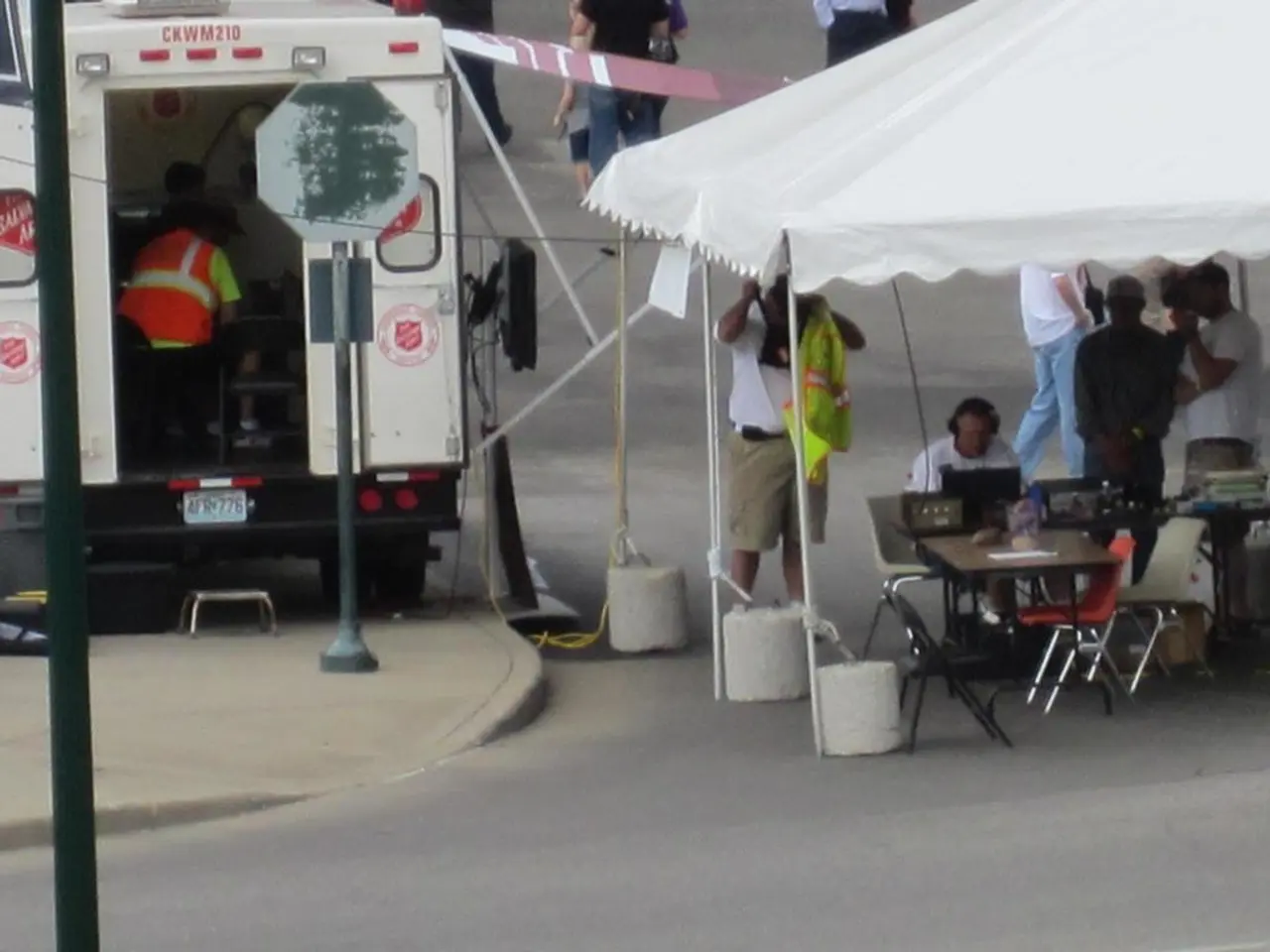Emergency Responders Aided by Volunteers in Bavaria
In Bavaria, Germany, the role of volunteer first responders is gaining significance in ensuring swift and effective medical care during emergencies. These volunteers, registered on platforms like Mobile Retter and Region der Lebensretter, are deployed in situations where they can reach the emergency location faster than regular emergency services or when the nearest emergency vehicle is in use.
The Bavarian Ministry of the Interior supports these projects, acknowledging their potential to help provide the fastest and best possible care for medical emergencies in the region. However, it's important to note that these on-site helpers are not part of the emergency services and do not receive state funding or central monitoring.
The network of volunteers in Bavaria currently comprises around 6,400 individuals, with the majority active in Cham, Neumarkt, Regensburg, and Munich. In 2024, these volunteers assisted in 3,602 incidents, almost double the number from the previous year.
To become a volunteer first responder, one must be of legal age, demonstrate the required maturity, physical and health fitness, and complete at least 48 hours of basic training. Regular training with practical exercises of at least four hours per semester is also mandatory. Volunteers have access to a complete emergency kit, including blood pressure and blood sugar testing devices, bandages, and breathing equipment.
While these volunteers cannot replace emergency services, they can complement them effectively, especially in rural areas with longer response times. Studies and reports from similar regions have shown that these types of systems can significantly reduce the time to first medical intervention, especially in cases of cardiac arrest, thereby improving patient outcomes.
The Bavarian Red Cross (BRK) also has a network of volunteers with Helfer vor Ort. Mobile Retter, a pioneer in this field, has saved almost 10,000 lives since its inception in the first regions. Other locations in Bavaria include Ingolstadt, Straubing, Landsberg am Lech, and Deggendorf.
The association Region der Lebensretter, which started in Kempten in the Allgäu in December 2022, now counts 5,870 helpers in Bavaria, with 1,990 in the Allgäu. Nationwide, the number of deployments is increasing, with 6,900 in 2022, 7,700 in 2023, and 8,700 in 2024. Control center locations for Region der Lebensretter are Donau-Iller, Nuremberg, and Oberpfalz-Nord; Augsburg and Coburg are in preparation.
The first guideline for first aid groups was published by the Bavarian Ministry of the Interior in April 2011. On average, regular emergency services take around nine minutes to reach the emergency location nationwide. Deeper training of 80 hours or more is recommended, especially if the first aid group is deployed frequently.
In summary, volunteer responder apps in Bavaria like Mobile Retter and Region der Lebensretter are generally effective in reducing emergency response times through rapid volunteer mobilization. While specific quantitative data on the exact degree of response time reduction or measurable impact in Bavaria is limited or not publicly detailed, the increasing number of deployments suggests a positive trend in the service's effectiveness.
Science is crucial in the development of technology and platforms like Mobile Retter and Region der Lebensretter, facilitating health-and-wellness initiatives by coordinating volunteer first responders. These health-and-wellness practices, anchored in Bavaria, could potentially serve as models for other regions to improve emergency care.




